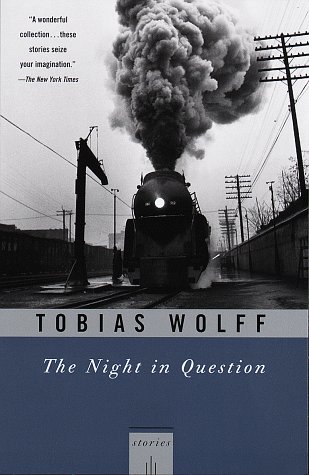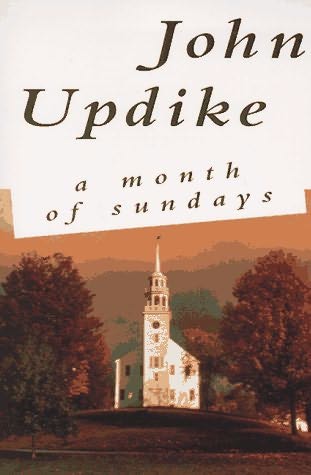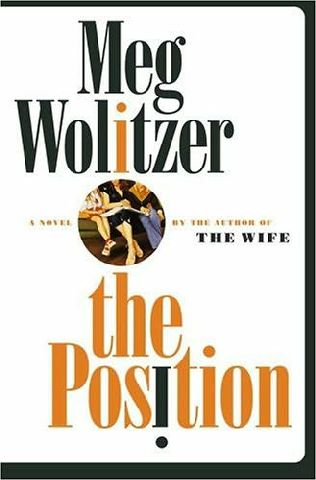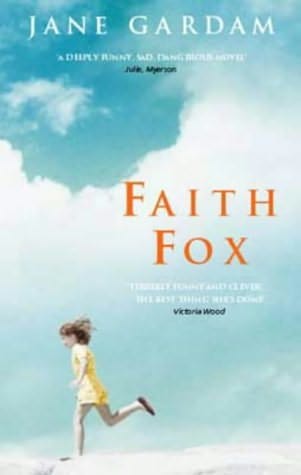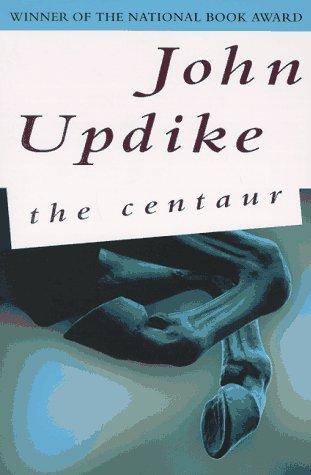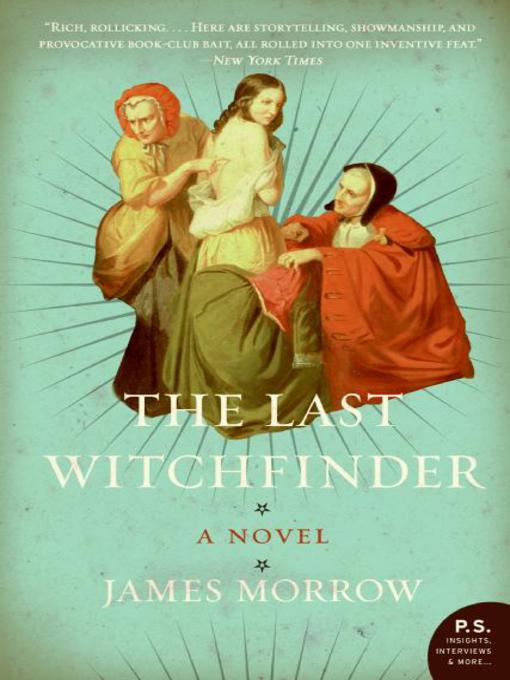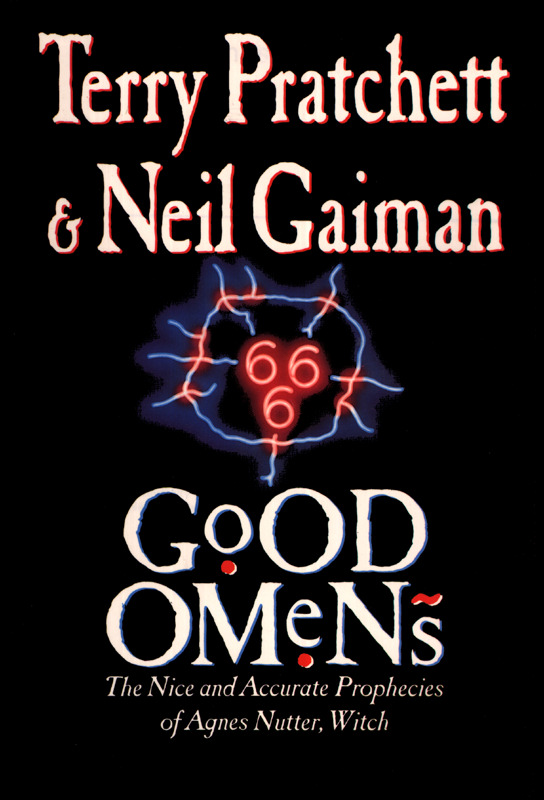Friday, November 27, 2009
In the Garden of the North American Martyrs and The Night in Question by Tobias Wolff
To reaffirm my belief that Tobias Wolff is a great writer, I chose to read two of his short story collections: In the Garden of the North American Martyrs (1981) and The Night in Question (1996). After all, short stories are really what Wolff does best, and his best is exquisite. But while I certainly can't find anything to complain about in Wolff's craft, I still can't say that reading these collections was a pleasant experience. Wolff so expertly gets to the heart of his characters' lonely states and holds them up to the reader like so many unflattering mirrors; it's enough to leave anyone weeping in the dark out of self-pity (not that I did this or anything....ahem).
The twelve stories of In the Garden of the North American Martyrs follow characters who find their places in the world eroding. In the title story, a brown-nosing professor interviews for a job at a prestigious Eastern college, only to learn that she was never really a serious candidate for the position. Another professor, in “An Episode in the Life of Professor Brooke,” realizes that his belief that he could positively affect the lives of others through academia is a myth. “Face to Face” tortuously recounts a decidedly un- romantic weekend vacation for a couple who have grown too far apart.
The Night in Question (1996)'s fifteen stories are similar to those of In the Garden of the North American Martyrs for characters who seek meaning out of life, and find none. The opening tale, “Mortals” is of a man who reports his own death to the local newspaper, hoping to see an outpouring of friends and family. He is sorely disappointed, of course. Other stories follow a book critic who is shot and killed while standing in line at the bank, a young woman who visits her father after his nervous breakdown, and a devoted sister struggling with a brother who obsessively recites a biblical sermon. Wolff doesn't lose his humor, as in "The Other Miller'' a story about a soldier relieved of duty after an erroneous report of his mother's death, who decides to go along with the mistake so he can get out and have a good time. But the overwhelming tone reflects Wolff's lines from "Migraine:" "...Everyone was alone all the time...Even together, people were as solitary as cows in a field all facing off in different directions."
This thought is probably all too true, and Wolff should be commended for articulating it in such a graceful way, with such masterfully-constructed tales. But I read to escape the loneliness of reality, so to find it there so bleak, so heartbreaking, is just too cold and cruel.
Thursday, November 26, 2009
Old School by Tobias Wolff
After my last few reviews, I've really wanted to read something that I could write about favorably. I figured Old School would be a sure bet, since I loved Wolff's memoir, This Boy's Life. But alas, I was disappointed yet again. It's not that Old School is a bad novel, it's not just not a particularly good one.
Wolff writes from his own experience about a Jewish boy trying to assimilate into a New England prep school. It's both a coming-of-age tale and the study of a writer's development. Which is lovely, except that there's nothing to set it apart from any other book about any other prep school misfit. There are moments of sparkling clarity, like when Wolff's narrator reflects on how being a writer allows him to "escape the problems of blood and class":
Writers formed a society of their own outside the common hierarchy. This gave them a power not conferred by privilege -- the power to create images of the system they stood apart form, and thereby to judge it.
But such instances of insight and masterfully crafted prose are too few and far between to carry and entire novel on their shoulders. Wolff is a good writer, he may even be a great one, but not because of the mediocre Old School.
Wednesday, November 25, 2009
Lancelot by Walker Percy
A novel doesn't require the reader to love the protagonist in order for it to be a successful work of fiction. Crime and Punishment, A Clockwork Orange, and An American Tragedy all have hateful main characters that are still so well-developed we can't help but identify with them in some way. Not so with Lancelot. Walker Percy's fourth novel ends up being nothing but a bitter, melodramatic rant that leaves the reader cold, without any connection to the characters or plot excepts for perhaps a vague sense of nausea.
Lancelot Andrewes Lamar, a relic of a Southern gentleman in the brash 1970s, carries the sole burden of narrating this tale. His is the only voice, which is unfortunate because, like a crusty old man at a dinner party, one tends to tune out his rants against the decadence of his era.
"I won't have it," he says. "The great whorehouse and fagdom of America....I do not propose to live in Sodom or to raise my son and daughters in Sodom."
The book is a string of similar invectives against blacks, women, and just about everything else. Though the viewpoints are provocative, they become tedious with repetition.
This wouldn't be the end of the world -- I don't have to agree with Lancelot to enjoy the book and the fact that I don't might actually make it more interesting -- but Percy offers his reader no way to connect to this man or his world. The voice is inconsistent and wandering and the character himself is entirely one-dimensional. There's no sense of warmth, no humanity. You can imagine a well-developed character walking off the page and living an independent life; these characters can barely survive the work they're already in.
Plot, you ask? Oh, yeah. There is one: some tiresome melodrama involving infidelity and revenge. No plot, though, no matter how thrilling, can save a novel from lack of character development.
And then there's the utter failure of Percy's Arthurian gimmick. In addition to Lancelot, there's also Percival and Merlin. Is there a parallel with the Arthurian legend that will enhance and enlighten both tales? I'm afraid not. The farthest Percy gets with this tack is an excuse for Lancelot to call his obsession over his wife's cheating a "quest...for the Unholy Grail." But she is no Guinevere and he is certainly no Knight of the Round Table, so the metaphor is entirely lost.
I try not to be too harsh with my criticisms; it's too easy to fall into the trap of constantly writing bad reviews because they're more interesting to read and write than good ones. But I have to take off the kid gloves here. If I could take back the two hours I spent reading Lancelot to spend on another, quality piece of fiction, I certainly would.
Tuesday, November 24, 2009
A Month of Sundays by John Updike
Updike's title refers to his novel's structure. We're reading the daily diary of the Reverend Thomas Marshfield, whose sexual indiscretions with his organist (only one among Updike's many double entendres) have resulted in his exile from family and flock. He has been banished to a desert retreat run by the impregnable Mrs. Prynne, where he reflects on his errors and continues to write ad libidum (there Updike goes again) sermons that he will never deliver.
This is one of the novels where you can tell the author had a lot of fun writing it. What New York Times reviewer Anatole Broyard called "double-entendre schizophrenic word salads" are the manifestations on the page of Updike doing what every good writer does: enjoying the written word and testing its limits. Yes, A Month of Sundays is often a pain to read because of Marshfield's bombastic style, and the thinly-veiled metaphors of sin and pleasure and repentance are just too weak, but appreciate this novel for what it is: a step in the developing career of a great writer.
The Position by Meg Wolitzer
When Roz and Paul Mellow write a book about sex in the 1960s, they don't worry about their four children finding it. Rather, they leave it on the bookshelf as a gift to their offspring, a way to help them discover the joys of sex. Because in the Mellows' world, sex is only a source of joy, a uniting force between a man and a woman under the warm glow of love.
But as all the Mellows, both children and parents, mature, they learn that sex is so much more. It divides as much as it unites, causes as much pain as it does joy. Sex brings the dangers of AIDs. And it is not so neatly confined to heterosexual relationships.
Wolitzer's novel explores the lives of Roz and Paul Mellow's four children: Michael, Holly, Dashiell, and Claudia, through their sex lives as they learn these harsh truths. But the constant introduction of sex never feels prurient or gratuitous, as is the danger with such a topic. Rather, Wolitzer always seamlessly connects sex to larger ideas about human connection, family, and what it means to feel comfortable in one's own skin. It is a deeply enjoyable, masterfully crafted work.
Faith Fox by Jane Gardam
Does anyone in a Jane Gardam novel call before visiting someone? Apparently not, because then she would be at a loss for plot devices. This was a minor detail implausibility in Old Filth, but it's impossible to ignore in Faith Fox. Characters are constantly crossing and re-crossing each other in a frenzy of missed connections, giving the novel the feeling of a table-tennis game. You have telephones, people. Use them.
Gardam published Faith Fox in 1996, eight years before Old Filth. It's striking to see how much her writing matured in that later work, and how far it had to come. Where Old Filth is nuanced and subtle, Faith Fox is heavy-handed and trite. In short: a groaner. A group of wayward folks, loosely linked by familial ties and their lost FAITH are drawn together by the advent of a motherless child named FAITH and through her eventually find their FAITH. Perhaps if they had a little more faith in telephones at the start of the book we could forget this whole mess. Next!
Saturday, November 21, 2009
Old Filth by Jane Gardam
I'm happy to have stumbled across Jane Gardam's work. Her writing is the kind that never fails to keep me engaged and is the hardest, I think, to accomplish. Gardam novels boast character development that is substantial but not heavy-handed, deep feeling that never turns saccharine, awareness of the extraordinary details of ordinary life, and just the right amount of sardonic British humor.
Old Filth (an acronymic nickname for "Failed in London, try Hong Kong") is a retired solicitor who has lived most of his life in Hong Kong with his wife, Betty, and has returned to England to spend his golden years. This is the story of a man's life, but Gardam only tells us the beginning and end. She alternates chapters between Filth's childhood in British-controlled Malaysia as a "Raj Orphan," modeled after Rudyard Kipling semi-autobiographical short story "Baa Baa Black Sheep, and his current state as an 80 year-old widower (Betty dies suddenly while gardening).
But Old Filth is really a story of a man's learning to love. Filth's mother died in childbirth and his father is mad. After being sent "Home" (an ironic term, since Filth has no real home anywhere) to avoid tropical disease, the boy is tossed among relatives and guardians who are at best distant, absorbed in their own troubles, and at worst abusive. "All my life...I have been left, or dumped, or separated by death from everyone I loved or who cared for me." Filth makes one emotional connection with a school friend, Patrick Ingoldsby. He falls in love with all the Ingoldsbys and is devastated when he realizes that he can never truly be part of the family, or any family for that matter. After Pat dies in World War II, Filth keeps everyone around him at a distance, even his wife. He and Betty sleep in separate bedrooms, since double beds are "for the bourgeoisie," he abhors the idea of having children, and he refuses to even recall his own maid's name, despite the years she has worked for him. Filth, as Gardam portrays him, is an extremely lonely man who cannot, or is loath to, connect with his fellow human beings.
Filth is a dynamic character, but Gardam keeps his transformation believable. Whether because his wife's death exacerbates his loneliness or reminds him of his own mortality and need to touch the world before he leaves it, Filth does begin to reach out slightly by the novel's end. But these gestures are subtle, never out of sync with the graceful balance of emotions Gardam has constructed here. Filth remembers his maid's name. He visits his neighbor for weekly chess games. He becomes less cantankerous, but 80 years of emotional lameness cannot be cured in an instant, and Gardam doesn't try to fool us that it can.
Which is why her twist ending is grossly out of place in this otherwise beautifully nuanced work. I won't divulge any secrets for those who wish to read the book themselves. I'll only comment that Gardam mars an excellent piece of fiction with the kind of lurid plot details that characterize ten-cent drugstore novels. It's an unnecessary addition and an unwelcome one, but I won't let it ruin my deep appreciation for what remains a captivating and touching read.
Wednesday, November 18, 2009
Freaks: We Who Are Not As Others by Daniel P. Mannix
I devoured this book in an hour, poring over the endlessly fascinating tidbits like the fact that the ancient Romans used to stuff babies into vases to create deformed freaks for Coliseum shows, or that the Algonquin Round Table was founded by Robert Benchley and Dorothy Parker to protect Robert Sherwood from midgets.
Mannix does not use the term "freak" in any derogatory sense. Rather, the book is compiled with memories and snapshots from his own days as a carny; he considers himself among them. And he celebrates their lives: their marriages, their children, their career successes. For Mannix, to be a sideshow freak is to exhibit the height of character and entrepreneurialism. Freaks take characteristics that society deems disabilities and turn them into extraordinarily valuable assets, earning millions for themselves and their peers.
What is it about freaks -- indeed, about this book -- that draws us in? Are we merely gawking at what some have deemed pornography? Not as Mannix presents his work. He and we, his readers, are merely satisfying our natural curiosity about other humans, trying to understand "normal" through its aberrations. You'll learn a lot about the various ways people can be born and you'll come out of this experience truly more informed and more understanding.
Honestly, I closed the back cover and immediately wanted to hug a midget, or a giant, or a hairy woman! They are just so cool and so courageous and set an example for the rest of us that what makes you different really does make you beautiful.
Monday, November 16, 2009
The Lazarus Project by Aleksandar Hemon
I was equally struck by this beautiful novel's simultaneously incredible humor and incredible sadness. A perfect example of their seamless coexistence in these pages is when our narrator, Vladimir Brik, walks into his Chicago kitchen to make coffee before his wife, Mary, awakes:
I spotted a can in the corner whose red label read SADNESS. Was there so much of it they could can it and sell it? A bolt of pain went through my intestines before I realized that it was not SADNESS but SARDINES.
Brik's marriage is in trouble because of his struggles to find his place, his identity, both as Bosnian immigrant in America and a writer. So the mundane, domestic details of his home kitchen are coated in sadness, but also by a sense of absurdity, of things being out of place.
The humor also comes from the exaggeration inherent in Brik's tradition of storytelling. Brik explains that this is how stories are told in his country: they are exaggerated, stripped of all proportion and divorced from truth until the world they create is absurd. Brik is shocked when, at a dinner party early in their marriage, Mary questions the validity of one of his stories in front of strangers. This is breaking a code; he never tells a story in front of her again.
As Brik struggles to tell his own story -- to blend the Bosnian and American modes of narration -- he seeks to tell the true story of Lazarus Averbuch, a mysterious historical figure who was shot and killed after attacking the Chicago chief of police in 1908, an incident that caused a xenophobic reaction among Chicagoans that all Jews were violent anarchists. Averbuch's corpse is stolen, recalling his namesake, the Lazarus who was resurrected by Jesus. All the character's in this novel are exiles, including the biblical Lazarus, whom Brik considers exiled from death. Did he die eventually? Was he ever able to go home? Brik wonders.
Hemon's novel shows the author as a master craftsman, truly worthy of his 2004 MacArthur "genius grant." He's able to subtly interweave questions about religion, xenophobia, family, and partnership in such a way that none of it seems trite or heavy-handed, but so that it all fits together seamlessly. The humor and the pain are so carefully blended that they never clash but rather serve as each other's perfect complements. Though Brik may have trouble telling his own story, Hemon has obviously found his voice.
The Centaur by John Updike
I never know what to expect from an Updike novel. I've read some that I loved and some I just hated, which I suppose is to be expected with any author so prolific (Updike has written more than 50 books). Glancing over The Centaur before I began reading, I thought I was in for what New York Times book reviewer Orville Prescott called a "laborious construction of mythological puzzles...sabotaged by pomposity and tedium." I must say, though, I was pleasantly surprised.
Updike weaves the story of a disillusioned schoolteacher, George Caldwell, and his son, Peter, in 1940s rural Pennsylvania with the parallel myth of Chiron and Prometheus. Chiron, noblest of all the Centaurs, wandered the world in agony after being accidentally wounded by a poisoned arrow. So tormented with pain, Chiron begged the gods that he might die in place of Prometheus, the Titan who stole fire to give it to humans. After Chiron's death, Zeus made him a constellation.
George Caldwell, too is injured by an arrow: a dart from his tormenting students catches him in the ankle and he must limp to a mechanic to have it removed. But he is much more deeply wounded in spirit. His son, Peter, looks on at his father's suffering while still plagued by his own. Like Prometheus, Peter's skin is being consumed, though by psoriasis rather than a vulture. And like all the characters in The Centaur this physical pain is a sign of a deeper, emotional longing to connect with another human in some meaningful way. What does it mean to have a place in society? Like the volvox Caldwell teaches in his science class, to become a part of an organized society is to enter a compromised environment, with the result being certain death. The individual sacrifices himself for the whole, just as Chiron sacrifices himself for Prometheus and Caldwell for Peter (and Peter for Caldwell).
The Greek gods are not like our Judeo-Christian God. They are flawed, they are capable of heartbreak. Updike's scheme of drawing parallels between them and Peter Caldwell's story would totally fail if he weren't able to also draw the emotional parallel that supports it. All of Peter's gods are flawed. He lives in a world where there is no comforting Christ figure, no hope for salvation of any kind. Rather, his father and the other adults whom he might choose as role models are all deeply troubled in some way and it drives them to hurt others. It's a world of endlessly reaching out for some connection with another and constantly missing it, just as Greek mythology is full of pursuing an object -- a lover, a goal, glory -- and being disappointed. The only promise, as George Caldwell realizes, is to be remembered fondly in one's death. It's beautiful and tragic and Updike captures it perfectly, saving the novel from being overly academic and empty. This is not, as Prescott would have it, "a maze of pretentious experimentation" and showy virtuosity, but rather a graceful and heartfelt exploration of humans' needs for one another.
Thursday, November 12, 2009
This Boy's Life by Tobias Wolff
I love memoirs. Maybe I shouldn't admit to that so readily, in the same way you don't easily confess to rushing home every day to watch Oprah. But I can't help it; I do. This confessional mode satisfies some essential part of the human psyche, the part that keeps us craning our necks at car accidents on the expressway. I want to know: What is your experience? What can it teach me about mine? The problem with most memoirs, however, is that they sour at some point, turning unbearable preachy and bombastic.
This Boy's Life has all the sensational elements of a page-turner: a poor upbringing, a drunken and abusive stepfather, delinquent adolescent behavior, and even some homoeroticism. Of course, it's not the story for which we should commend Wolff, as it is not fiction (though perhaps fictionalized), but the way he tells it. In line with Wolff's oeuvre, This Boy's Life is really a collection of short stories. These stories are like snapshots tucked in a family album, more in the order that someone remembered to paste them there than when they were taken. Wolff does not commit the cardinal error of memoir writing: pretending he recalls more than he did, or was aware of more than he was at the time. He resists retrospective analysis, steeping readers in the muddle of his adolescence just as he experienced it.
All memoirs should aspire to be like Wolff's. After all, these snapshots are all we ever have from which to view a life. And from them one can more easily achieve the purpose of memoir writing: the sense of shared experience. I may not have had an abusive stepfather or have grown up in a boarding house, but I do remember having a (toy) gun from which I wouldn't be separated and the (apparent) ingenuity to fudge school documents. Because of these congruities, I can connect with This Boy's Life and I'm sure others can, too, though their points of entry may differ. Wolff's humility in letting us see him as a child, and thereby see ourselves as children, rather than an older, wiser adult saves This Boy's Life from the fate that gives all memoirs a bad rap. Give it a good read before you turn your back on the genre forever.
This Boy's Life has all the sensational elements of a page-turner: a poor upbringing, a drunken and abusive stepfather, delinquent adolescent behavior, and even some homoeroticism. Of course, it's not the story for which we should commend Wolff, as it is not fiction (though perhaps fictionalized), but the way he tells it. In line with Wolff's oeuvre, This Boy's Life is really a collection of short stories. These stories are like snapshots tucked in a family album, more in the order that someone remembered to paste them there than when they were taken. Wolff does not commit the cardinal error of memoir writing: pretending he recalls more than he did, or was aware of more than he was at the time. He resists retrospective analysis, steeping readers in the muddle of his adolescence just as he experienced it.
All memoirs should aspire to be like Wolff's. After all, these snapshots are all we ever have from which to view a life. And from them one can more easily achieve the purpose of memoir writing: the sense of shared experience. I may not have had an abusive stepfather or have grown up in a boarding house, but I do remember having a (toy) gun from which I wouldn't be separated and the (apparent) ingenuity to fudge school documents. Because of these congruities, I can connect with This Boy's Life and I'm sure others can, too, though their points of entry may differ. Wolff's humility in letting us see him as a child, and thereby see ourselves as children, rather than an older, wiser adult saves This Boy's Life from the fate that gives all memoirs a bad rap. Give it a good read before you turn your back on the genre forever.
Wednesday, November 11, 2009
The Last Witchfinder by James Morrow
The Last Witchfinder is really two books in one, woven together so seamlessly and inventively that alternating chapters begin and end with the same word. An example of Morrow's deft transitions:
An argumentum grande is growing inside me. I have achieved a mental / Pregnancy rarely saved the life of a convicted sorceress during the witch-hunting centuries, but a full womb was normally good for a temporary reprieve.
One tale is that of Jennet Stearne, daughter to a witch-hunter and niece and pupil of the female philosopher Isobel Mowbry, who is unsurprisingly burned at the stake, an act which commits Jennet to her aunt's legacy. Throughout a plot that rivals daytime soap operas for twists and turns, Jennet experiences a kidnapping by Native Americans, the loss of two children (one to smallpox, another to her husband's machinations), a shipwreck, and a fiery relationship with a 19 year-old Benjamin Franklin when she is 47 (the first cougar?). Her brother, Dunstan, marries the infamous Abigail Williams, the foremost accuser of the Salem witch trials, and becomes a witchfinder himself, while Jennet devotes herself to proving, with the help of Sir Isaac Newton, that witches do not exist.
Telling this story is another book; in this world Morrow has created for us, books write each other. The true author of Jennet's tale, it seems, is not Morrow himself, but rather Isaac Newton's "Philosophiae Naturalis Principia Mathematica." This is certainly a rather contrived way to frame what is essentially a historical novel, and I wonder how much Morrow intended to show off his own erudition with this authorial sleight of hand. I give him points for originality, a quality not always conducive to generating readable material. To my surprise and pleasure, however, Morrow's storytelling not only supports his showmanship, but is zested throughout with his gift for cleverly turned prose.
*Thanks again to Sarah Carbone and Dianne Schure for recommending this book to me, and especially to Sarah for lending me her copy.
Good Omens by Terry Pratchett and Neil Gaiman
Any decent review of Good Omens would be short; short enough to include only the words, "Go read it." To try to replicate or encapsulate Pratchett and Gaiman's witty prose, hilarious dialogue, and brilliant subplots would be sacrilege to the many who have run through many copies of the novel mainly because their paperbacks have disintegrated from overuse.
But, alas, such is the task I have set out for myself, and so I must try.
The premise: The Apocalypse is near. This is rather unfortunate, as the angel Aziraphale and the demon Crowley have grown to quite like humans in their respective capacities as the representatives of God and Satan on Earth. As they've become good friends, they hatch a plot to postpone the world's end by ensuring that the Antichrist, the son of a prominent American diplomat stationed in Britain, never develops the ability to discern between Good and Evil. Of course, the Antichrist child actually isn't (there was a switch-up at birth) and so high-jinks ensue as the Four Horsemen of the Apocalypse assemble and the amusing prophecies of the 17th century prophet Agnes Nutter begin to come true.
The book is a quasi-parody of the 1976 film The Omen, and the character of Crowley is no doubt a reference to Aleister Crowley, the English occultist. It is steeped in that British brand of humor that blends two parts cynicism to one part absurdity, and stands as a hallmark of its genre (occult parody). Reading Good Omens isn't simply enjoying a comedic novel, however, it's initiation into a cult of ardent devotees. Do you dare to become one of them?
*Thank you to Dianne Schure and Sarah Carbone for bringing me over to the dark side.
*And for those of you die hard Pratchett/Gaiman fans, check out this Complete Listeners' Guide with AudioFile Magazine's must-listen's from both authors, interviews with four narrators, and a download of A Study in Emerald, written and read by Neil Gaiman.
But, alas, such is the task I have set out for myself, and so I must try.
The premise: The Apocalypse is near. This is rather unfortunate, as the angel Aziraphale and the demon Crowley have grown to quite like humans in their respective capacities as the representatives of God and Satan on Earth. As they've become good friends, they hatch a plot to postpone the world's end by ensuring that the Antichrist, the son of a prominent American diplomat stationed in Britain, never develops the ability to discern between Good and Evil. Of course, the Antichrist child actually isn't (there was a switch-up at birth) and so high-jinks ensue as the Four Horsemen of the Apocalypse assemble and the amusing prophecies of the 17th century prophet Agnes Nutter begin to come true.
The book is a quasi-parody of the 1976 film The Omen, and the character of Crowley is no doubt a reference to Aleister Crowley, the English occultist. It is steeped in that British brand of humor that blends two parts cynicism to one part absurdity, and stands as a hallmark of its genre (occult parody). Reading Good Omens isn't simply enjoying a comedic novel, however, it's initiation into a cult of ardent devotees. Do you dare to become one of them?
*Thank you to Dianne Schure and Sarah Carbone for bringing me over to the dark side.
*And for those of you die hard Pratchett/Gaiman fans, check out this Complete Listeners' Guide with AudioFile Magazine's must-listen's from both authors, interviews with four narrators, and a download of A Study in Emerald, written and read by Neil Gaiman.
Monday, November 9, 2009
Downtown Owl by Chuck Klosterman
I'm a huge fan of Klosterman's critical work. Fargo Rock City not only got a girl raised on Joan Baez and wheat germ to appreciate heavy metal, it got me to love it, too. Which is why I'm willing to forgive this very confused attempt at a novel, because I know there's some serious talent underneath the painful self-consciousness of Klosterman's adolescent attempt at fiction.
Klosterman's milieu is pop culture, and he finds this new medium very difficult. He uses several different devices to make himself more comfortable, all of which fail by getting in the way of the story. There's the constant name-dropping of 80s cultural references, and the cop-out of using "like an Altman film" as the sole description in some places. The barrage of witticisms is also distracting. In the first three pages alone, we're told that "the sun was burning and falling like the Hindenburg;" "His quadriceps stored enough lactic acid to turn a triceratops into limestone;" and "It would feel like being wrapped in cellophane while hauling bricks in a backpack." Clever, sure, but I want to read about the characters, not the author's wit.
Then, Klosterman does things with style that might work if they weren't so clichéd and if he could actually follow through with them to a reasonable point. But the ostentation of his writerly gimmicks lapses into absurdity by the novel's end. We are meant to understand that the book's action parallels that of George Orwell's 1984, which the Owl high school students are reading in their English classes (the year is 1983). And we follow three characters, each with their own separate chapters and points of view, who are meant to represent Winston, O'Brien, and Julia (Mitch, Horace, and --suprise!-- Julia). The town of Owl is a tiny fishbowl in North Dakota, and the characters can't even find privacy in this novel, since Klosterman reveals everyone's thoughts about everything to the point of disrupting the action. The book trots on nicely for a while, and then Klosterman totally loses it. He experiments with shorter chapters, combined chapters with all three protagonists' points of view (an epic fail), and an ending I'm still trying to work out.
Sorry, Chuck. Don't quit your day job.
Sunday, November 8, 2009
Main Street and Babbitt by Sinclair Lewis
The protagonists of both Main Street and Babbitt take apparently disparate views toward small town life: Carol Kennicott née Milford would rather be anywhere else than Gopher Prairie, Minnesota, whereas George F. Babbitt cherishes the routine and (apparent) simplicity of the fictional Zenith, Winnemac. Lewis manipulates these two characters' views of what it means to live in middle America, and, of course, our own.
Carol Kennicott has big dreams. We meet her as a student in Blodgett College, full of poetry and sensibility. Her conflict arises from the fact that she doesn't lose these youthful aspirations after marrying a small town doctor and moving with him to the Midwest outpost of Gopher Prairie, known for its German farmers and gossip. Claustrophobic in her neat house with nothing but chores to fill her time, Carol becomes a Midwestern Madame Bovary, tormented by her conviction that anywhere other than Gopher Prairie and its restrictive social conventions would be an improvement. For fear of spoiling the novel's ending, I will only remark that Carol's ascent is not quite so linear.
Nor is it for George Babbitt. A realtor (don't dare call him a real estate agent) with a solid family, a car, and a nice house in the prestigious Floral Heights neighborhood, Babbitt thinks he's got it made. Sure his kids could be a little more obedient and sure he could smoke less, but Babbitt firmly believes that if everyone else strictly followed his dear principles of Morality, Republicanism, and Common Sense, the world would be a much better, happier place. That is, until Babbitt learns through hard experience that his convictions don't necessarily correspond to reality.
Carol's unhappiness stems from her inability to see what is good about her life, whereas Babbitt's downfall results from not seeing his own failings enough to forgive it in others. Lewis presents us with these two extreme and often ridiculous approaches to life, leaving us, his readers, to find some middle ground.
Saturday, November 7, 2009
Freakonomics and Superfreakonomics by Steven D. Levitt and Stephen J. Dubner
While reading these two books, I started a mental list of how many people I should present with them as Christmas gifts. Talk about food for thought; these two collections of essays are both like seven-course meals of amuse-bouches. I don't even know where I would begin a review of these gems: the revelation that Roe v. Wade significantly reversed rising crime rates across the nation? the analytical breakdown of street economics, including drug dealers and prostitutes? the plan for global cooling?
Granted, the authors are intentionally provocative with their work and are conscious of writing for a lay audience. We lose the academic rigor that would call for the authors to substantiate these claims in any real depth. Several of Levitt's colleagues have taken exception to the unconventional nature of his research, but many others have praised him for bringing new life to a field that constantly threatens to dull the uninitiated at dinner parties. I, for one, am satisfied by the considerable end notes and the authors' rhetorical style of anticipating objections to their arguments. Maybe that reveals a degree of laziness on my part, but that will do for this brand of intellectual porn. In 15 minutes I can read one chapter and satisfy my urge for cool facts and well-spun rhetoric without the commitment of following a real academic study. Like the up-scale prostitute profiled in Superfreakonomics, these books offer a no muss, no fuss great time.
Subscribe to:
Comments (Atom)



